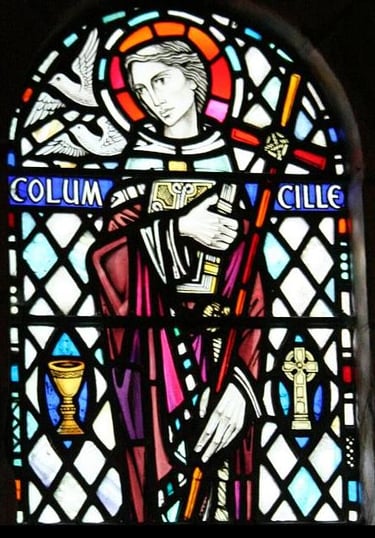The Irish Copyright War: The Deadly Copyright Battle
The Irish Copyright War stemmed from an unauthorized copying of a psalter by St. Columba from Abbot Finnian, leading to a dispute settled by King Diarmait under Brehon Law. The King's ruling, "To every cow her calf, so to every book its copy," favored Finnian, forcing Columba to relinquish the copy and establishing a foundational, albeit ancient, precedent for intellectual property rights. Columba's subsequent violent retaliation in 561 CE, resulting in thousands of casualties, highlights the profound historical significance placed on original works and their duplication, foreshadowing modern copyright laws.
The Irish Copyright War, an extraordinary conflict, offers a fascinating glimpse into early notions of intellectual property, predating modern copyright frameworks. This seminal dispute began when St. Columba, a prolific Irish monk, undertook the unauthorized copying of a psalter during a visit to Abbot Finnian of Moville. Columba was known for transcribing scholarly works, and his meticulous duplication of Finnian's manuscript prompted the abbot to assert a powerful claim. Finnian's argument, rooted in the foundational principle "To every cow her calf, so to every book its copy," asserted that the copied work belonged to the original's owner, establishing an early, albeit informal, claim to a derivative work. This confrontation encapsulated a burgeoning awareness of authorship and the inherent value of intellectual creations in an era where reproduction was an arduous and highly valued process.
The escalating dispute was ultimately brought before King Diarmait for arbitration, invoking the principles of the indigenous Brehon Law system. The King's pronouncement, echoing the famous adage, definitively ruled in favor of Abbot Finnian, compelling St. Columba to surrender his unauthorized copy of the psalter. This landmark judgment, delivered under ancient Irish law, profoundly foreshadowed the fundamental tenets of future copyright laws by recognizing a form of proprietary right over copied intellectual works. Feeling deeply wronged by the ruling, St. Columba reportedly vowed vengeance, perceiving the decision as an unjust curtailment of his spiritual and scholarly pursuits. His indignation escalated into a full-blown conflict, culminating in the tragic Battle of Cúl Dreimhne in 561 CE, which reputedly caused over 3,000 casualties. This devastating "war over a book" remains a powerful historical illustration of how ancient societies grappled with the concepts of original works and the legitimate limits on their unauthorized duplication, serving as a remarkable testament to the deep value placed on intellectual creations even in the distant past.


